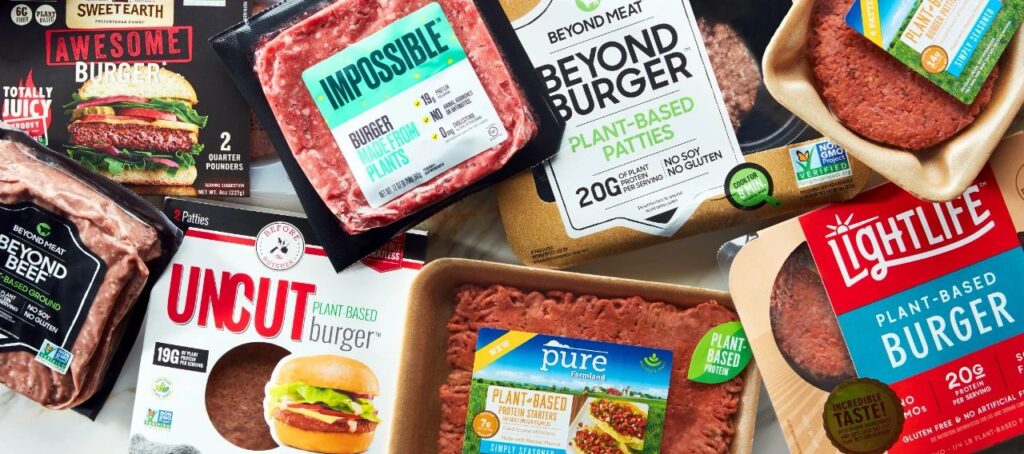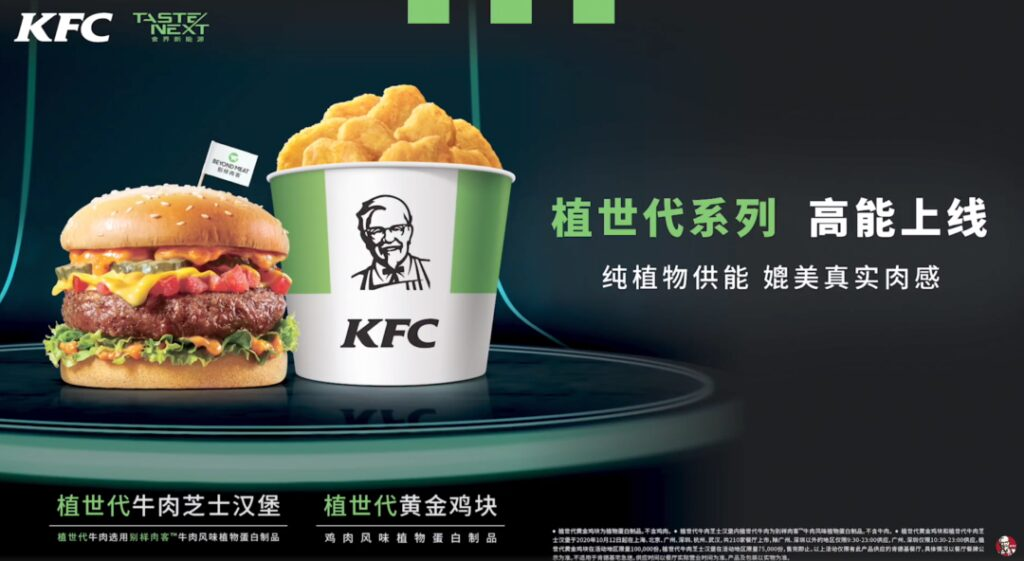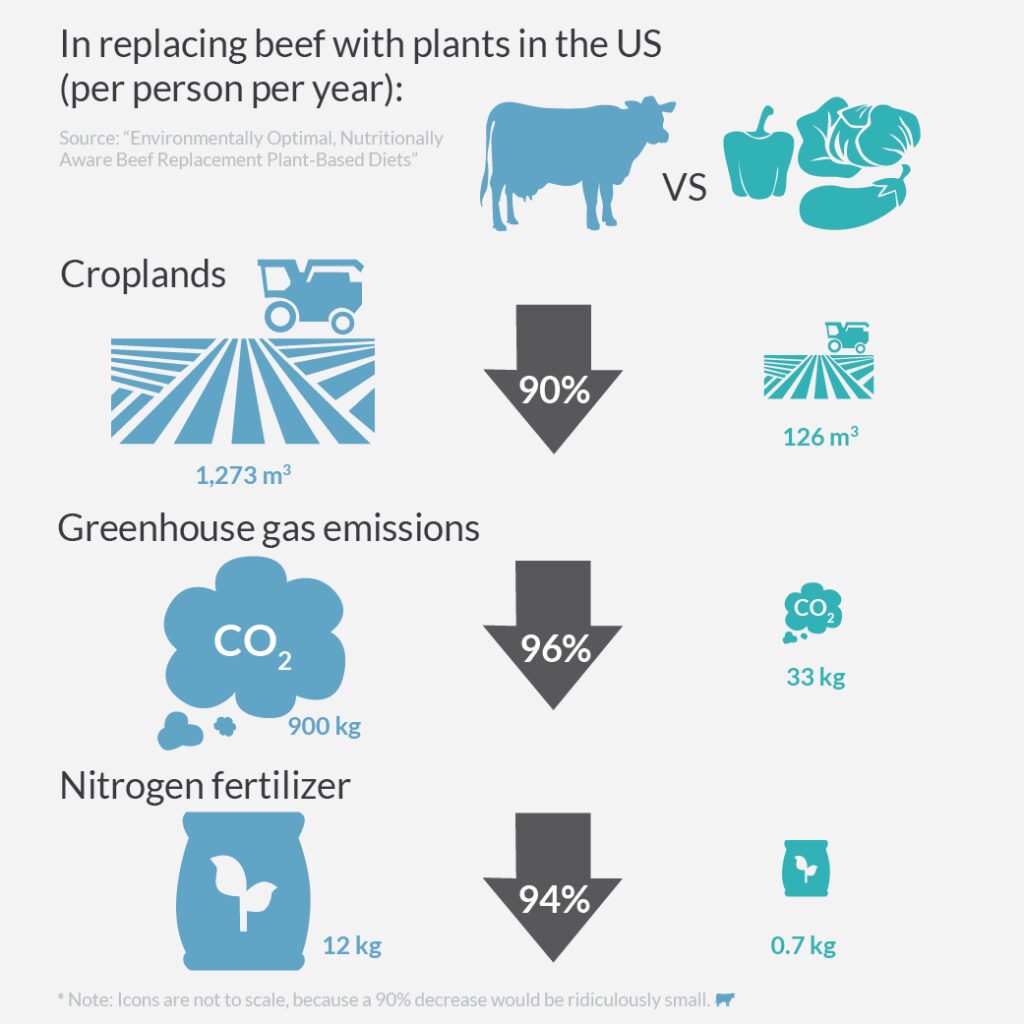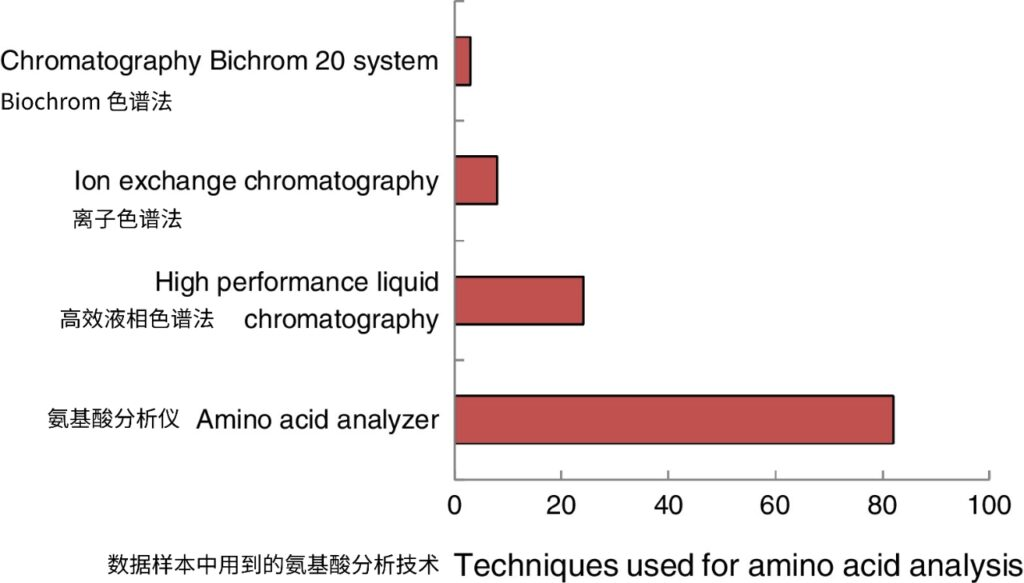Command Palette
Search for a command to run...
Are You Interested in Trying plant-based Meat That Has Been Modified Using Algorithms?

Humans have always used animal protein as their main source of energy. With the deepening of concepts such as environmental protection and sustainable development, many companies have begun to explore plant substitutes for animal protein.
Earlier this month, McDonald's announced thatA new plant-based meat product line, McPlant, will be launched in 2021. The new product categories will include burgers, chicken substitutes and breakfast sandwiches.
In fact, McDonald's is not the first fast food restaurant to try plant-based products, and McPlant is not McDonald's first attempt at plant-based meat burgers.
Plant-based meat: a new dietary favorite from concept to table
From September last year to early 2020,McDonald's has collaborated with Beyond Meat, an American plant-based meat producer.The plant-based meat burger PLT is quietly sold in some stores in Ontario, Canada.Test consumers' acceptance of artificial meat burgers.
On October 12 this year, KFC launched a limited-time and limited-quantity trial sale of new plant-based products - plant-based burgers and plant-based chicken nuggets - in 210 stores in six cities in China, including Beijing, Shanghai, Guangzhou, Shenzhen, Hangzhou and Wuhan.
The new product line is called "Plant Generation" and includes two plant-based meat products:Beef cheeseburgers (beef-flavored plant protein products) and golden chicken nuggets (chicken-flavored plant protein products).

It doesn’t matter if you haven’t tried the plant-based meat burgers from KFC and McDonald’s. We have collected some of the plant-based meat foods and plant-based milk drinks that are still on sale in the domestic market, and marked the reference prices. You can go to the stores or buy them online to try them out.
| Plant-based foods/beverages on sale (domestic) | ||
| brand | product | Reference retail price |
| HEYTEA | Future MeatCheeseburger | 25 |
| Zhou Hei Ya | Mock MeatDuck Neck | 75/catties |
| Starbucks | Different Beefsandwich | 35 |
| Starbucks | Oatmeal Matcha Latte (Plant Milk) | 35 |
| Jinhua Ham | Beef Flavor Meat Patties | 57/catties |
"Plant-based meat" leads to a new way of healthy living
Plant-based meat food, as the name suggests,It refers to food made by replacing animal protein with plant protein.Compared with foods rich in animal protein such as meat, eggs and milk, plant-based meat products are more expensive.
There are two main reasons for this phenomenon:First, the development of plant-based foods is still in its early stages, with high costs and unclear economies of scale. Second, plant-based foods represent a more environmentally friendly and healthier lifestyle, and businesses hope to attract middle- and high-income consumers by raising prices.

A study published by researchers at Bard College shows thatIf one American were to replace the beef consumed in a year with vegetables,The occupied arable land area, greenhouse gas emissions, nitrogen fertilizer demand, etc. will be reduced by more than 90%
Taking Beyond Meat, the "first artificial meat stock", as an example, its research method is mainly to select protein and nutrients from plants (soy protein, pea protein), and then add colorants and flavorings extracted from plants such as soy hemoglobin to simulate the taste, appearance and nutrition of real meat.
Finding alternative proteins in plants has also become the mainstream research and development idea for artificial meat, artificial milk and other foods. But this is not easy to achieve.
Ten thousand kinds of amino acids, algorithm matching for more nutrition and deliciousness
According to the Food and Agriculture Organization of the United Nations, there are as many as 250,000 edible plant species, and there are certain similarities between plants and animals in terms of certain chemical compositions.Therefore, it becomes possible to disassemble animal protein foods and replace them with nutrients derived from plants.
However, animal protein foods have complex ingredients, and humans can only identify 2-3 of them at a time.If we rely solely on humans to decompose, the efficiency will undoubtedly be low and the effect will be poor.
With the help of artificial intelligence, this problem can be greatly simplified. NotCo, a Chilean food technology company founded in 2015, developed a machine learning algorithm called Giuseppe.

Using this algorithm,From a dataset of 7,000 plant amino acid structures,An ideal substitute for animal protein.
These molecular data include food color, as well as scientific research parameters such as taste, touch, acidity, and richness, providing reference standards in different dimensions for the research and development of plant-based foods.
According to the food names input by researchers,Giuseppe will output 50-60 recipes.After testing all the recipe versions, the R&D team sorted the recipes according to the values of attributes such as taste, texture, and color, and handed them over to Giuseppe for iteration, ultimately finding a recipe that was closer to animal food in terms of taste, appearance, and nutritional elements.
Click to watch NotCo's product development story
So far, NotCo has successfully launched the "fake" Not series of foods.Including milk, mayonnaise, ice cream, meat patties, etc., and now they are also working hard to develop tuna substitutes.
In addition to the industry, academia has also shown great interest in this. In 2019, researchers from the University of Notre Dame published a paper titled "Amino acids distribution in economically important plants: a review".The distribution of amino acids in important economic crops was discussed.

Researchers use channels such as Google Scholar, Scopus and Google toThe amino acid distribution of 142 important economic crops was collected, ranging from national regions to plant parts, and the details of essential amino acids, non-essential amino acids, and amino acid types contained in the plants were summarized in different categories.It is of great significance to the research on plant substitutes for animal protein.
Paper address:
https://www.sciencedirect.com/science/article/pii/S2452072119300449
High price and single form, are you willing to pay for plant-based meat?
Nowadays, plant-based foods are more popular in Europe and the United States. The leading plant-based meat suppliers, Beyond Meat and Impossible Foods, are also American companies. Beyond Meat was founded in 2009 and its current market value is close to 10 billion US dollars.
Last year, U.S. plant-based food retail sales grew by 11%, while the overall U.S. food market grew by only 2.2% during the same period.
European and American consumers have a great demand for meat products, which mostly appear in a single form such as meatballs and meat patties. Therefore, plant-based meat started early in European and American countries and has a high acceptance rate.
When KFC launched the Plant Generation burgers and chicken nuggets, many of my friends bought them to try.The taste of plant-based beef is almost the same as real meat.In addition, hamburgers have a variety of seasonings and side dishes, so it is impossible to distinguish them based on taste alone.

However, there is a clear difference in taste between plant-based meat and real meat.Plant-based patties are looser.Plant-based chicken nuggets have water chestnuts and other ingredients to enhance the taste. Overall, the taste is good, but it is still different from real chicken.
Chinese people have a variety of ways to cook meat, including braising, steaming, stewing, stir-frying... They have more complex requirements for the taste of meat, which also puts higher demands on domestic plant meat manufacturers and products.
Take the domestic plant-based meat manufacturers Xingqiling and Z-Rou Meat as examples.Both have launched products in different shapes and flavors such as meatballs, meat floss and meat sauce, which are suitable for Chinese and Western restaurants and home cooking scenarios.

Currently, Xingqiling and Z-Rou Meat both supply raw materials to chain restaurants and vegetarian communities, or produce customized joint products as the main sales method. Many plant-based meat dishes are already on the market.
In recent years, new plant-based meat products have appeared on the menus of chain restaurants such as Heytea, Starbucks, and Zhou Hei Ya. It is not difficult to see that they are all consumer upgrade brands that are at the forefront of innovation. Plant-based meat represents a more environmentally friendly dietary concept and has also attracted many consumers who are interested in and in need of plant-based meat to pay for it.
However, among the early users, there are also many young people who come for the sake of trying something new. If we want plant-based meat to become a strong competitor on the public table, there is probably still a long way to go.
-- over--



